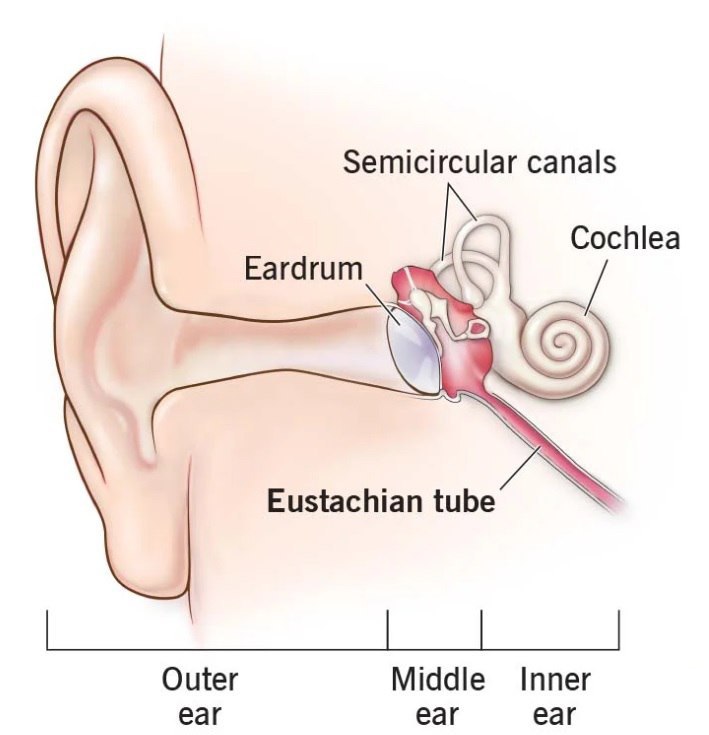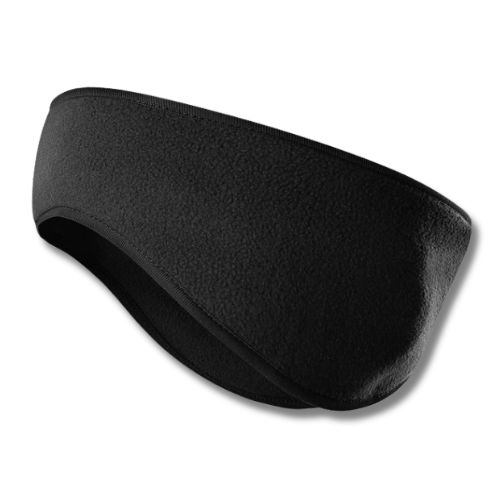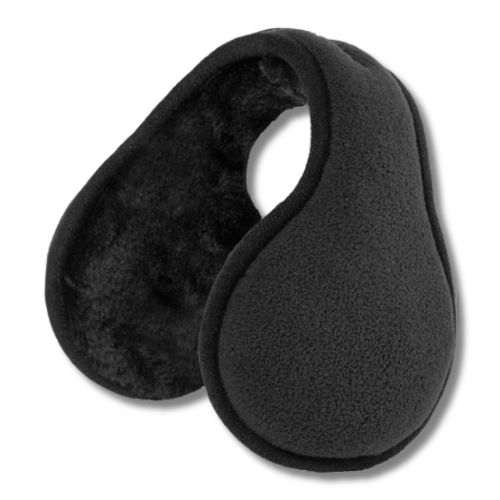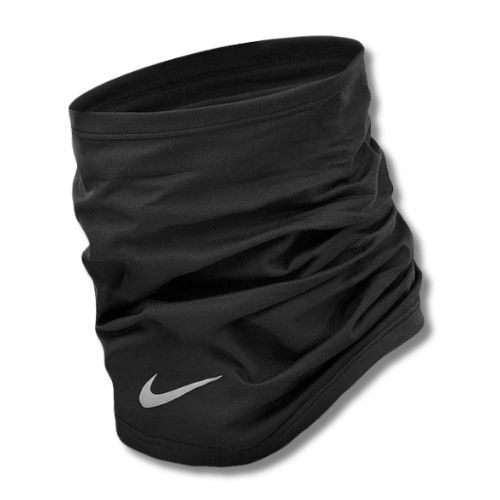Why Do My Ears Hurt After Running: 7 Causes of Ear Pain
Do you ever wonder Why do my ears hurt after running?” You’re not alone. The sensation of ear pain when running can be puzzling. In this guide, we will explore the possible causes of this symptom and offer practical solutions to ease your discomfort.
Why do my ears hurt after running?
If you have ever asked yourself “Why do my ears hurt after running?” you may be interested to know that ear pain after running can occur due to a condition called auricular chondritis, which is inflammation of the ear cartilage. Repetitive impact and motion during running can aggravate the cartilage, leading to discomfort or pain in the ears.
The Problem of Ear Pain After Running: Why It Is Important to Consider
It is important to consider the problem of ears hurt when running because it can be a symptom of an underlying issue that requires attention. Ear pain can indicate various conditions, such as ear infections, inflammation, or damage to the structures within the ear. Ignoring or dismissing ear pain can lead to complications and potentially worsen the condition.
Ear pain after running can impact an individual’s performance and enjoyment of physical activities. Running relies on a person’s ability to maintain focus, balance, and coordination, all of which can be disrupted if they are experiencing discomfort or pain in their ears. Moreover, persistent ear pain can hinder motivation and discourage individuals from participating in regular exercise, leading to a decline in their physical fitness and overall health.
Running itself does not directly cause ear problems. However, certain factors associated with running can contribute to ear-related issues. For instance, intense physical activity, such as running, can lead to changes in blood pressure and circulation.
4 Reasons Why Ears Hurt When Running
So, what is the answer to the question “Why do my ears hurt when I run?” There can be several reasons why ears may hurt when running, and it is essential to understand them in order to prevent or alleviate the discomfort. Let’s explore some possible reasons why ears might hurt during running and discuss how to avoid and manage each issue.
1. Eustachian Tube Dysfunction
One common reason ears hurt when running is Eustachian tube dysfunction. The Eustachian tubes connect the middle ear to the back of the throat and help regulate pressure in the ear. When the pressure in the middle ear is not equalized properly, it can lead to discomfort or pain. To avoid Eustachian tube dysfunction, it is recommended to maintain good nasal hygiene and keep the nasal passages clear. Blowing the nose gently before running can help ensure proper airflow.
2. Ear Wax Buildup
If you ever thought, “Why do my ears hurt when I run?” it could be a buildup of earwax, medically known as cerumen. Excessive earwax accumulation can lead to discomfort or pain, especially during physical activities. To avoid earwax-related ear pain, it is crucial to maintain proper ear hygiene. Avoid inserting objects like cotton swabs into the ear, as they can push the wax deeper and cause blockages.
3. Temporomandibular Joint (TMJ) Disorder
Some individuals may experience ear pain while running due to a condition called temporomandibular joint disorder (TMJ disorder). The TMJ connects the jaw to the skull, and issues with this joint can cause pain that radiates to the ears. To avoid exacerbating TMJ-related ear pain, it is recommended to maintain good jaw alignment. Avoid excessive jaw movements or clenching during runs.
4. Otitis Externa
Swimmer’s ear, sometimes referred to as otitis externa, is an infection or inflammation of the external ear canal, which can also happen during jogging. To prevent it, it is important to maintain dry, clean ears and pat the outer ear dry with a towel or hair dryer after running.
3 Reasons for Ear Pain After Running
Ear pain after running can be a common and bothersome issue for many individuals. While certain causes, such as Eustachian tube dysfunction, temporomandibular joint (TMJ) disorder, and earwax accumulation are well-known culprits for ears hurt when running, other reasons can contribute to ear pain after running, as well. Let’s explore some possible reasons why ears might hurt after running.

1. Barotrauma
Barotrauma is the term for harm to the ear brought on by fluctuations in pressure. Running can also cause barotrauma due to the frequent collision and jarring motion involved in the activity, which leads to an increase in ear pressure after running. To prevent and treat this, use supportive earbuds or earmuffs, apply a warm compress to the ear that is hurting, and take over-the-counter painkillers.
2. Allergic Rhinitis
An allergic response to environmental allergens such as pollen, dust mites, or pet dander can cause allergic rhinitis. Running during periods of lower allergen levels, such as after rain, can help prevent ear pain after running. Wearing a hat and sunglasses can also help block certain allergies.
3. Tension in Jaw Muscles
Tension in the jaw muscles, often caused by clenching or grinding teeth, can contribute to ears hurt when you run outside. To prevent this, stress-reduction techniques such as deep breathing, meditation, and relaxation activities can be beneficial. Wearing a mouthguard or seeking dental intervention can also help alleviate symptoms.
4 Tips How to Run in Cold Weather So That Your Ears Do not Hurt
You might have wondered “Why do my ears hurt when I run in the cold?” While running in inclement weather can be invigorating and refreshing, it also presents unique challenges, such as the discomfort of having your inner ears hurt when running in the cold. However, with the right habits and appropriate gear, you can minimize the discomfort and enjoy your cold-weather runs while keeping your ears pain-free.

1. Wear a Headband or Hat
The exposure of the ears to chilly gusts during cold weather jogging is one of the primary causes of ear discomfort. It is advised to use a headband or cap that covers your ears to prevent this. Your ears will be shielded from the chilly air and insulated by these accessories.
Our Recommendation
Lauzq Winter Fleece Ear Warmers Muffs Headband
This Ear Headband crafted for warmth and comfort. This versatile accessory provides cozy protection during sport activities.
Material:
Winter fleece.
Comfort and Fit:
Contoured design for a snug, secure fit.
Special Features:
Versatile for men, women, and kids.
Size:
One size fits all.
2. Use Ear Warmers or Earmuffs
If you prefer not to wear a headband or hat, another option is to use ear warmers or earmuffs specifically designed for outdoor activities. These accessories are designed to cover the ears and provide warmth and protection to prevent inner ears hurt when running in the cold.
Our Recommendation
Metog Unisex Foldable EarMuffs
This EarMuffs is your essential for keeping ears warm in cold and wind weather with a versatile, foldable design.
Material:
Warm polar fleece/knit.
Comfort and Fit:
Foldable design for adjustable snugness.
Special Features:
Portable and suitable for travel.
Size:
One size fits most.
Type:
Unisex winter EarMuffs.
3. Choose a Suitable Neck Gaiter or Scarf
Cold air can seep through gaps between your headwear and clothing, affecting the temperature and pressure around your ears. To further shield your ears from the cold, consider wearing a neck gaiter or scarf that you can pull up over your chin and mouth. By covering this area, you create an additional layer of protection for your ears, preventing excessive ear pressure after running.
Our Recommendation
This wrap for neck is perfect for active people who need moisture control during training and versatile neck protection while running in the cold.
Material:
Dri-FIT fabric for moisture-wicking comfort.
Breathability:
Mesh construction for enhanced airflow.
Special Features:
Reflective Swoosh logo.
Size:
One Size Fits All.
Type:
Unisex neck wrap.
4. Keep Your Ears Dry
Moisture, such as sweat or excess humidity, can exacerbate the discomfort in your ears while running in cold weather. Ensure that your ears are dry before you start your run and consider using a moisture-wicking fabric for your headwear to prevent the buildup of sweat and ear pain from wind.
4 Ways to Prevent Ear Pain After Running
It is essential to find the right treatment for acute or persistent ear pain, but there are also preventive steps you can take to reduce it and make running more enjoyable.
1. Ensure Proper Ear Protection
Wearing the right gear is crucial for preventing inner ears hurt after running, due to the cold winds and excessive exposure to noise. Headbands or hats should cover your ears and protect against cold temperatures and strong winds. This will reduce the chances of pain or infections during or after your run.
2. Maintain Proper hydration
Following a run, dehydration can make an earache worse. The mucus membranes of your ears are impacted by dehydration, which makes them more prone to irritation and pain. Drink enough water before, during, and after your run to maintain optimal hydration. This will keep your body hydrated and ensure that your ears are operating at their best.
Subscribe to Our Running Newsletter!
Get free running tips from renowned professional athletes and discounts from top-notch brands.
3. Warm Up and Cool Down
Proper warm-up and cool-down exercises are essential for preventing ear pain after running. Gradually increasing the intensity of your workout and incorporating stretching exercises can improve blood circulation and reduce the risk of ear discomfort. Similarly, cooling down after your run allows your body to gradually return to its resting state, preventing abrupt changes in blood flow that could contribute to ear pain.
4. Avoid Exposure to Loud Noises
Exposure to loud noises during your run, such as traffic or loud music, can cause temporary or even permanent damage to your ears. This damage can manifest as ear pain or ringing sensations. To prevent this, choose running routes that are away from busy roads or use noise-canceling headphones to block out excessive noise.

Is It Possible to Run with Ear Disease?
Running with ear disease can be challenging, but it largely depends on the specific condition and its severity. While certain ear conditions may not directly influence a person’s capacity for running, others can significantly restrict it.
Running ability is not adversely impacted by some ear conditions, such as minor episodes of otitis media or external ear infections. However, more severe or chronic ear diseases, such as Meniere’s disease or inner ear infections, can have a more substantial impact on running.
Engaging in vigorous physical activity, including running, may exacerbate these symptoms and increase the risk of falls or accidents. It is crucial to follow medical advice and avoid activities that worsen the condition until appropriate treatment is received.
Frequently Asked Questions About Why Do My Ears Hurt After Running
Why do my ears hurt after running in the cold?
If you have ever wondered “Why do my ears hurt when I run in the cold?” the answer is that it is often caused by a condition known as “runner’s ear” or “swimmer’s ear.” Cold air and wind can cause the sensitive skin inside the ear canal to dry out and become irritated. When combined with increased blood flow during exercise, this can lead to discomfort or aching in the ears.
How to stop ear pain after running?
There are a few steps you can take to alleviate ear pain after running. First, make sure to keep your ears warm by wearing appropriate headgear in colder weather. Additionally, try using over-the-counter ear drops to help soothe any irritation or inflammation. If the pain persists or is severe, it’s important to consult with a medical professional.
Why Do My Ears Hurt After Running: The Final Thoughts
In conclusion, it is important to understand why do my ears hurt after running. By taking preventive measures, such as keeping your ears warm and using ear drops, you can reduce the likelihood of experiencing pain. However, if the problem persists or becomes severe, seeking medical attention is recommended to ensure proper diagnosis and treatment.
Also read:
- How to Keep Shorts From Riding Up
- Average 3 Mile Run Time
- Proper Running Foot Strike
- Running Barefoot On Treadmill
- Average 200 Meter Time
- Carb Loading for Half Marathon
- Best Running Arm Sleeves
- What to Wear Running in 50 Degree Weather
References:
- Why Does My Ear Hurt? // WebMD: https://www.webmd.com/cold-and-flu/ear-infection/why-does-ear-hurt
- Interventions for adult Eustachian tube dysfunction: a systematic review. // NCBI: https://www.ncbi.nlm.nih.gov/books/NBK262265/
- Earwax Buildup and Blockage // Healthline: https://www.healthline.com/health/earwax-buildup
- TMD (Temporomandibular Disorders) // NIDCR: https://www.nidcr.nih.gov/health-info/tmd
- Swimmer’s ear // Mayo Clinic: https://www.mayoclinic.org/diseases-conditions/swimmers-ear/symptoms-causes/syc-20351682
- Inner ear barotrauma in scuba divers. A long-term follow-up after continued diving // PubMed: https://pubmed.ncbi.nlm.nih.gov/8457309/
- How to Treat Ear Pain Brought on by a Common Cold // Healthline: https://www.healthline.com/health/ear-pain-due-to-cold
If you have any questions or suggestions, you can contact us via email – [email protected]









